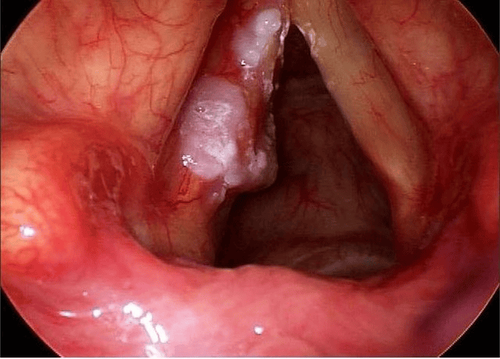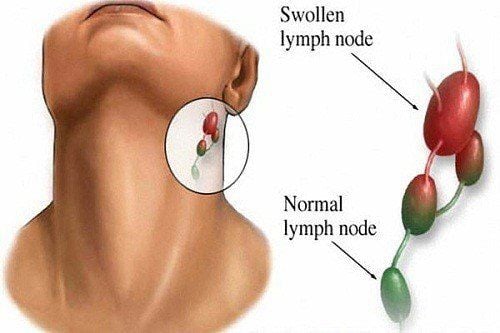This is an automatically translated article.
Articles written by MSc, BS. Nguyen Vinh Toan, Department of Interspecialty - Vinmec Times City International General Hospital
Total laryngectomy is a major surgery indicated for patients with extensive laryngeal cancer or severe trauma to the neck area. After this surgery, the patient's speech, swallowing and breathing functions will be affected.
1. What is a total laryngectomy?
Total laryngectomy is surgery to completely remove the larynx. The larynx is the part of the pharynx that contains the vocal cords that produce the source of sound. The larynx connects your nose and mouth to your lungs. In addition, the larynx also has a protective effect on the respiratory tract by keeping food and drinks from the esophagus from entering the lungs
If you are prescribed a total laryngectomy, it will affect speech function , swallow and breathe. You will have to learn to adapt to these functions after surgery.
2. Why total laryngectomy?
Total laryngectomy is a major surgery indicated for patients:
Laryngeal cancer has spread; Severe trauma to the neck such as a gunshot wound; The effect of tissue necrosis of radiotherapy.

Bệnh nhân bị ung thư thanh quản lan rộng cần phải phẫu thuật cắt thanh quản toàn phần
3. Preparing for a total laryngectomy?
Total laryngectomy is a long surgery, usually lasting about 4-5 hours. Surgery is performed with the patient under anesthesia. This means you will sleep and feel no pain during the surgery.
Your doctor will perform a few tests before surgery to assess your general health. You will also be given an explanation of what to expect after surgery.
Pre-operative examinations include:
Blood tests; Clinical examination; Stop smoking; Nutrition consulting; Stopping certain medications such as aspirin, ibuprofen; Do not eat or drink the night before surgery.
4.Steps of total laryngectomy
The doctor will start with an incision in your neck through which the larynx can be removed. Lymph nodes and part of your pharynx will also be removed, depending on the size and spread of the cancer. Lymph nodes are part of the immune system and are scattered throughout the body. It helps you fight bacteria but is a place where cancer cells can metastasize. After the larynx is removed, the doctor will create a permanent tracheostomy, the size of a pecans, on the front of the lower part of the neck. It helps to connect the outside air directly to the lungs so that you can breathe. Some patients will undergo a tracheostomy. It can be done at the time of surgery or at a later time. The purpose of this procedure is to facilitate subsequent rehabilitation of speech. Once the surgery is over. The muscles of the neck and the skin in the neck area will be closed with surgical sutures. You may have a drain placed in your neck before being moved out of the recovery room. The functional drainage tube drains fluid and blood in the surgical cavity for several days.

Hạch bạch huyết có thể giúp bạn chiến đấu với vi khuẩn nhưng là nơi có thể bị tế bào ung thư di căn
5. Recovery after total laryngectomy
Most patients with total laryngectomy are hospitalized for several days after surgery in the intensive care unit. Your doctor will closely monitor your blood pressure, heart rate, and other vital signs. You will be given oxygen through the tracheostomy right after surgery. You are not allowed to eat by mouth immediately after surgery when the incision has not yet healed. Your doctor will place a tube from your nose down your stomach and deliver nutrition directly to your stomach. Your neck will appear swollen and painful. You will be given a reduced medication here if needed. Once your condition is stable, you will be moved out of your usual care room. Normally, patients after total laryngectomy will stay in the hospital for about 10 days. During this time, the incision will stabilize and you will be able to practice swallowing again and begin rehabilitation exercises. Your doctor and nurse will encourage you to walk again early to prevent embolism, reduce your risk of pneumonia, and get used to permanent stoma. Getting up and walking early will help the recovery process faster. To avoid complications after surgery, you should choose reputable medical facilities with a team of highly qualified doctors. Vinmec International General Hospital is a high-quality medical facility in Vietnam with a team of highly qualified medical professionals, well-trained, domestic and foreign, and experienced.
A system of modern and advanced medical equipment, possessing many of the best machines in the world, helping to detect many difficult and dangerous diseases in a short time, supporting the diagnosis and treatment of doctors the most effective. The hospital space is designed according to 5-star hotel standards, giving patients comfort, friendliness and peace of mind.
Please dial HOTLINE for more information or register for an appointment HERE. Download MyVinmec app to make appointments faster and to manage your bookings easily.













